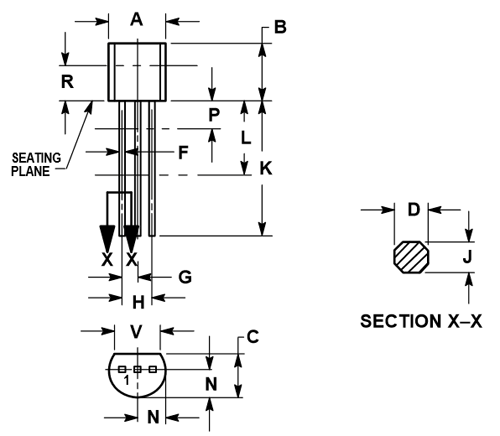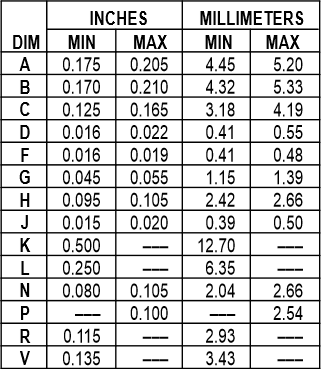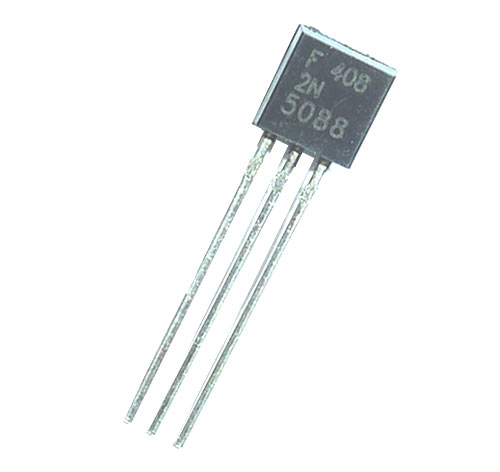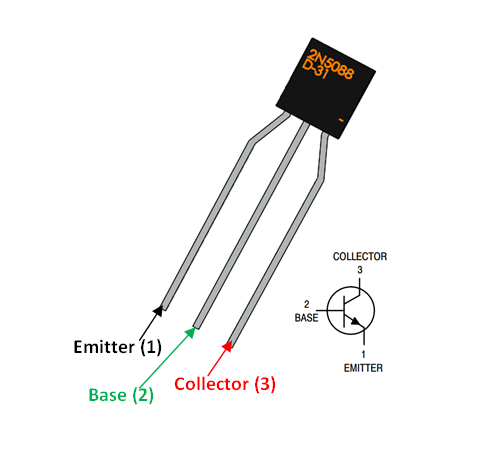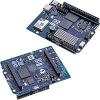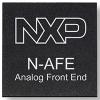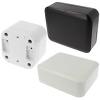2N5088 NPN Transistor
2N5088 Pin Configuration
|
Pin No. |
Pin Name |
Description |
|
1 |
Emitter |
Current Drains out through emitter |
|
2 |
Base |
Controls the biasing of transistor |
|
3 |
Collector |
Current flows in through collector |
Features and Specifications
- Higher gain value
- Low noise
- Pb free device
- Low current (max. 100nA)
- Low voltage (max. 30V)
- Collector-Emitter Voltage: 30 Vdc
- Collector-Base Voltage: 35 Vdc
- Emitter-Base Voltage: 3.0 Vdc
- DC current gain: 1200 hFe (max.)
- Operating and Junction Temperature: –55 to +150 °C
Note: Complete technical information can be found i the 2N5088 Datasheet linked at the bottom of this page.
2N5088 Equivalent Transistors
2N5089, 2N3904, 2N4401, BC108, 2N5210, MPSA18, 2N2222, KSP05, KTC9014, MPS650/1, MPS6602, ZTX692/4/6, S9014
Brief Description
2N5088 is a NPN transistor hence the collector and emitter will be left open (Reverse biased) when the base pin is held at ground and will be closed (Forward biased) when a signal is provided to base pin. 2N5088 has a gain value of 900 (normally), maximum it reaches up to 1200. This value determines the amplification capacity, which is high in this transistor.
How to Use 2N5088 Transistor in a Circuit?
This transistor like all can be used either as a switch or as an amplifier. The Base-Emitter voltage of this transistor is 3V so you just have to supply this voltage across the base and emitter of the transistor to induce a base current into the transistor. This transistor will make it forward biased and thus closes the connection between collector and emitter. However one important thing to notice is the Base resistor a.k.a current limiting resistor. As the name suggests this resistor will limit the current flowing through the transistor to prevent it from damaging. The value for this resistor can be calculated using the formula
RB = VBE / IB
To make things simple we have shown a simplified circuit to make a transistor as switch. In actual circuit modifications might be required. I have used a base voltage of 5V and a value of 1K as current limiting resistor.
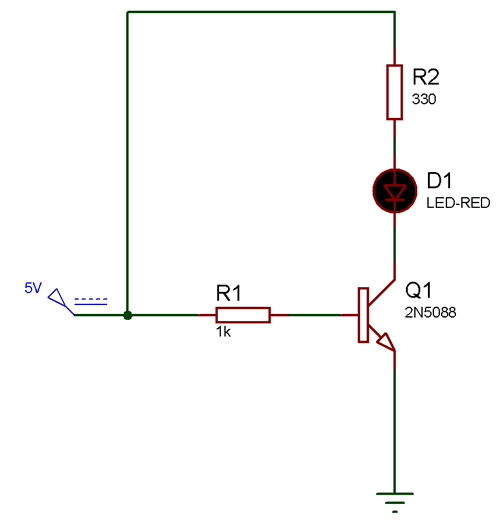
Applications
- Low noise stages in audio equipment
2D-model and Dimensions
